Autism and ADHD are something that affects approximately 15-20% of the population. The increased diagnosis of Autism and ADHD in teens and adults highlights the need for there to be more conversations that facilitate the shifting of the paradigm on how we speak about, perceive and include neurodiversity.
Meet The Valentins
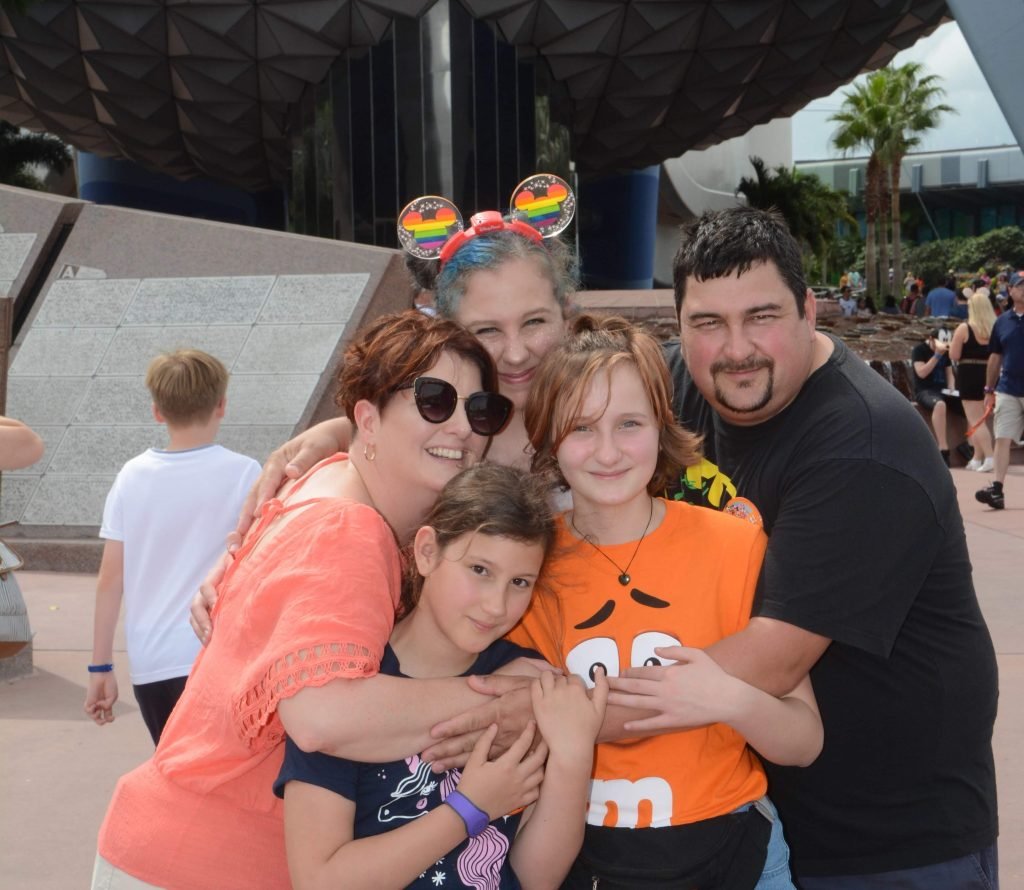
Our family is a bit different to most families. From the outside, we look like your typical two-parent, three-kid family. However, what most people won’t know from just looking at us is that we are a neurodiverse family. What I mean by this is that our family is made up of individuals who are neurotypical, Autistic, have ADHD or are a combination of both.
Our Story So Far…
After what we considered a ‘normal’ Kiwi childhood, as our children advanced into their teen years we noticed them began to struggle with anxiety, eating disorders, panic attacks and depression.
As parents, Wayne and I blamed ourselves for arguing when our kids were younger and attributed this childhood trauma to their struggles with their mental health. Desperate to ‘fix’ things for our kids, we sought the help of counsellors, psychiatrists, psychologists and therapists. However, nothing (including medication) helped. Eventually, we referred to an adolescent psychologist who eventually diagnosed our oldest child, Madi with ASD (Autism Spectrum Disorder). Further testing revealed that their sister is Autistic too. I also discovered (as so many parents do after their children are diagnosed) that I was neurodivergent too (Autistic and ADHD).
As a neurodivergent person and a mother, I very quickly learned that support from outside sources was not going to be enough to keep my children safe. I discovered that I would have to step up and become an advocate for my teens. Educating ourselves and our children with the knowledge, tools and skills that we would need as a family was going to be our lifeline.
In this blog, I share some of what I have learned through my own research and my lived experience as a neurodivergent person and a mum of neurodivergent teens. The reason that I am doing this is that I believe that if we want to create better outcomes for ourselves and our children, awareness and education are vital.
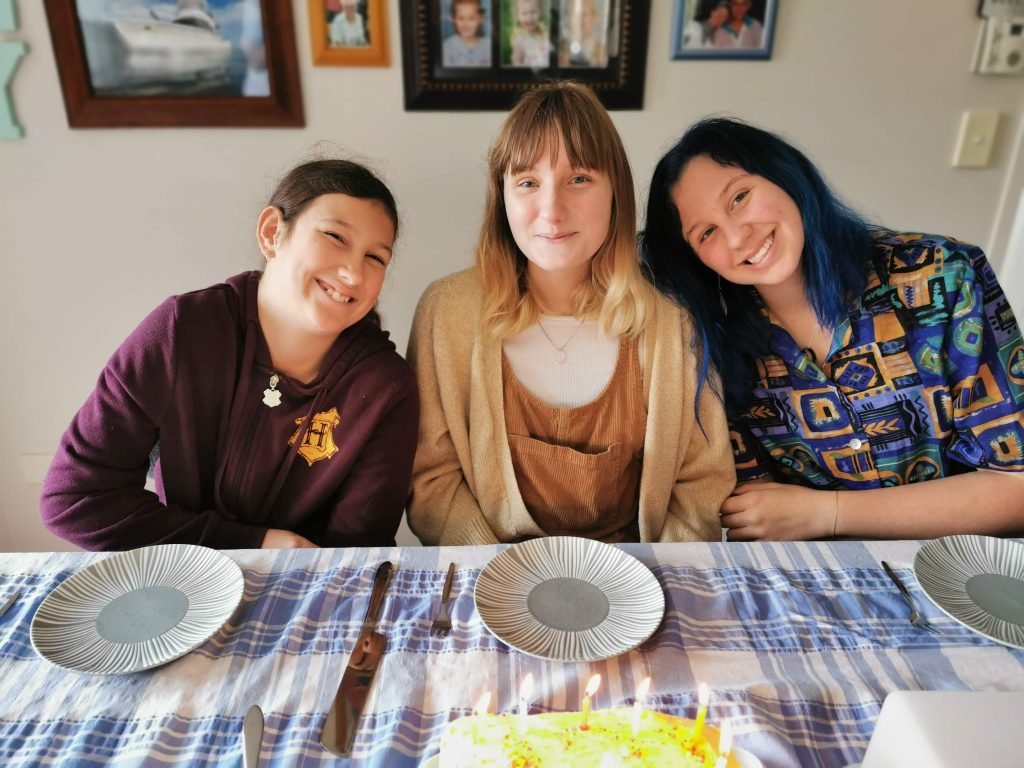
Lack Of Support For Families Of Neurodivergent Children
Like many parents, we pushed for a diagnosis. Our thinking was that this was going to be ‘the thing’ that would finally provide some relief for our family. That it would get us much-needed support.
However, in reality, like most families, we were given a diagnosis, a handful of pamphlets to read, videos to watch and a list of autism websites to look at.
We were a family in crisis. However, New Zealand’s mental health system (like many in the world) is so overloaded with need. I also discovered through many invalidating and frustrating experiences that medical professionals are often not trained with the necessary neuro-affirming knowledge to treat and support the unique needs of neurodivergent patients.
Understanding The Complex Needs Of Neurodivergent Individuals Within The New Zealand Medical System
Autism and ADHD are lifetime conditions that affect how the neurodivergent person perceives the world, thinks and behaves, communicates and interacts with others. It affects everyone differently.
For some neurodivergent people, this will affect them in ways that are noticed outwardly. Being non-verbal is an example of this.
However, for many neurodivergent individuals, Autism and ADHD will affect them internally.
It is also common for there is be an intersectionality between neurotypes (for example you can be both Autistic and have ADHD as well as being dyslexic or dyspraxic) as well as other co-occurring medical conditions such as Crohn’s disease, Fibromyalgia, Ehlers-Danlos Syndrome and congenital heart disease.
Each person will have a unique set of needs. None of this seems to be considered within our New Zealand medical system. The most common thing I hear from medical professionals who have little to no understanding of our complex health needs and neurobiology is, “You can’t blame everything on Autism”.
This may not be everyone else’s experience, however, we soon discovered that unless your child is on the brink of suicide (and in many cases even then) a wait for months or even years to get support for your family is considered normal. If your child is older, they don’t have a physical disability or they are considered ‘high functioning’ there is even less support.
The sad truth is that when it comes to your child and your family, no one is coming. It is going to be up to you as a parent to educate yourself and advocate for them, and fight for help.
Gender And Neurodiversity
So little is actually known about neurodiversity, and more research is paramount to effectively support neurodivergent people. Even less is known about women or AFAB (assigned female at birth) and neurodiversity.
When I first found out that Madi was autistic as their (Madi is non-binary) mum I felt so guilty. It had taken us 18 years to find out that they were Autistic. So much of how we had parented them and their siblings as Autistic kids in a neurotypical world caused them unimaginable childhood trauma and complex PTSD. This is still something that I struggle with. And the worst part is that we didn’t even know that we were doing it. Even seemingly ‘good’ things like a family trip to Disney World (as pictured in our family photo above) and all the sensory overload that this creates can cause trauma for an autistic person.
I felt like how I imagined a woman must feel when she unexpectedly finds out that she is pregnant at 8 or 9 months of gestation.
Picture this.
The mother in this scenario has just been given the news that will drastically change her life. As it is so late in her pregnancy, she has little or no time to prepare herself for the arrival of her child. She is reeling in shock. To further compound things, due to the fact that she didn’t know that she was pregnant, she regularly consumed alcohol, smoked cigarettes and ate all the food she was not supposed to during her pregnancy.
Imagine this mother’s fear and worry that she had unknowingly contributed to irreparable damage to her baby. Imagine her horror and shame when she realises that her behaviour has adversely affected her child’s health and well-being. Her actions may have damaged the whole life of her child for the rest of their life! She may picture others shaking their heads and saying scathingly under their breath, “How did she not know?” “It’s all her fault!” or “What a bad mother!”
I know these are not the same thing. However, when you receive news that ruptures your reality, as a parent in many cases, you are welcoming a new version of your child or a ‘newborn’ reality into your life. The thoughts of self-blame and the feelings of fear, uncertainty, overwhelm, worry, anxiety and shame are very similar in both of these scenarios.
The fact is, many of the ways we test for Autism are based on what is common for young boys, which is different to girls, women and AFAB. Girls, women and AFAB are socialised differently from boys and often mask in order to fit in and are often only diagnosed as Autistic or ADHD later in life because of this.

In her insightful Ted Talk, Behind the Mask: Autism for Women and Girls, Kate Khale, a young woman who was diagnosed late into her teens, further highlights that if your daughter was verbal, intelligent and appeared empathetic, behaviourally normal and compliant as a child, her autism could easily have been missed.
For our family, we only noticed that there was something amiss when our daughters started struggling with their mental health in their teen years. And even then, these signs of Autism were often dismissed by mental health professionals as ‘bad parenting’.
Research Into Neurodiversity And Employment Statistics
In a speech that she gave in 2019 at TEDxMacquarieUniversity, Dr Jac den Houting, an Autistic person herself, a medical professional, researcher and advocate for Autistic people, said this:
“We spend hundreds of millions of dollars, globally, every year on autism research. And the vast majority of that research conceptualises autism as a problem. Recently I conducted a study examining how autism research funding has been invested in Australia over the last 10 years. Here is what I found. More than 40% of funding went to genetic and biological research, trying to find our why autisic people are the way they are and if there’s a way to prevent it. Another 20% of funding went into investigating treatments for autism, most of which are trying to find new ways to make autistic people just act a bit less weird. Only 7% of funding went to research investigating services to help autistic people.”
Dr Jac den Houting
Much of society’s and the medical profession’s perspective sees Autism and other forms of neurodivergence as a problem. When I started doing my own research on Autism to learn how to support my children better, I was bombarded with information about their deficits. This did not line up with my view of them as brilliant, capable and beautifully unique human beings full of strengths, talents and possibilities.
Societal Perceptions Of Autism And ADHD
This view of Autism and ADHD through this deficit lens can exacerbate feelings of hopelessness for neurodivergent children, teens and their families. This has far-reaching effects on the way neurodivergent people see themselves, which erodes their confidence and sense of self-worth. One of the consequences of this is how neurodivergent people are represented in the workforce. According to Dr den Houting, 60% of Autistic people are under or unemployed.
In a peer-reviewed article by Nancy Doyle, Almuth McDowall entitled Equality, Diversity and Inclusion one of the key findings was:
The academic literature was found to be lacking in contextualized, practical advice for employers or employees. The location and foci of extracted studies highlighted a growing science-practitioner gap…In this paper, we highlight the inadequate scope and focus of academic attention on neurodiversity and employment to date across the fields of applied psychology and management studies.
Doyle, N; McDowall, A; 2021
Much of this disadvantage for neurodivergent people stems from Autistic and other neurodivergent people being expected to fit into a world created by and for neurotypical people. There is no denying that being neurodivergent causes challenges for people. However, in itself, being Autistic or ADHD does not mean that neurodivergent people cannot find or maintain employment or live a purposeful, fulfilling life, given the correct support.
According to Amanda Kirby, MBBS ,MRCGP, Ph.D., is CEO of Do-IT Solutions, emeritus professor of developmental disorders at the University of South Wales,
Any trait can be an advantage for some people if they have the opportunity to deploy it in a useful way —for example, being extremely creative or gifted with numbers. For some, however, having neurodivergent traits may create challenges, especially when navigating settings where there are social expectations. The differences can lead to, or be associated with, difficulties, including mental llnesses.
Amanda Kirby
In other words, in order for Autistic and ADHD people to be successful in the workforce, the environments and social constructs around employment for neurodivergent people need to change to be more accommodating to them and their needs.
Mental Health Statistics
Part of the complex and terrifying challenges for neurodivergent people and their families is that approximately 87% of Autistic and other neurodivergent people are affected by mental illness.
My heart catches in my throat every time I think of the average life expectancy of a person with Autism being 36-54 years. (Hirvikoski 2018). The study cited the main causes of death in Autistic people are heart disease, suicide and epilepsy. In fact, the suicide rate in people with autism is NINE TIMES HIGHER than the average population.
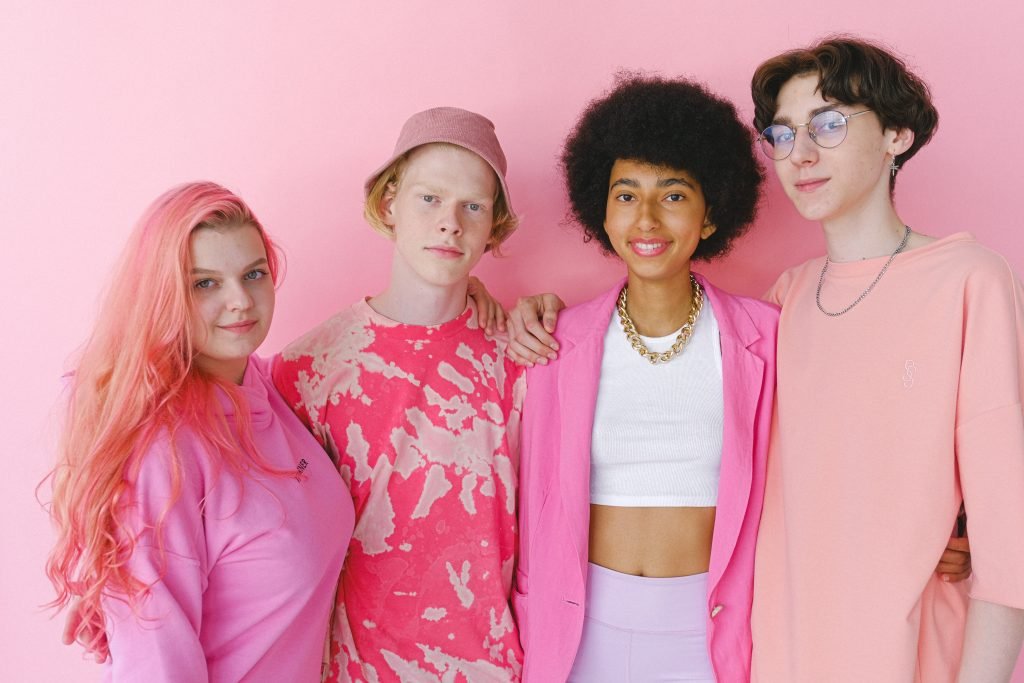
Links Between Neurodiversity And The LGBTQ+ Community
My lived experience, backed up by research, has shown a large intersection between being neurodivergent and gay, lesbian, bisexual, a-sexual, non-binary and transgender.
Evidence suggests that neurodivergent people, particularly those on who are Autistic are more likely to be gender diverse and have a lesbian, gay, bisexual, queer, or asexual sexual orientation, compared to neurotypical people. The reasons why are not well understood. One possibility is that neurodivergent people tend to be less aware of, or less susceptible to, societal pressures and gender norms; therefore, they can express their gender identity or sexual orientation without concerns of being judged or fitting into certain roles.
National LGBT Health Education Centre – The Fenway Institute.
Many experts call this the ‘double minority effect’: neurodivergent individuals who are also part of the LGBTQ+ community are more likely to be bullied, discriminated against and shunned for not being ‘normal’. Unfortunately, this increases the risk of anxiety, depression and death by suicide significantly for people who are in this ‘double minority’ group.
‘Othering’ Neurodivergent People
As a child, I watched the movie Rainman with my family. I remember feeling really uncomfortable with what I saw on the screen, it reminded me of my Uncle Edgar, who I now recognise as being neurodivergent, and had lived for most of his life in a home for disabled people. I, like most other people of my generation, grew up in a society where we ‘othered’ people and locked away those who don’t conform to what we consider ‘normal’. In my experience, ‘normal’ generally translates to a white, straight, neurotypical, patriarchal view of things.
Looking back, I realise how these early experiences shaped me and how I viewed neurodivergent people. It also contributed largely to the feelings of fear and uncertainty I felt when my own children were diagnosed as Autistic (and later when I started questioning my own neurodivergence).
My experience with my children and my personal journey with Autism and ADHD helped me to see just how damaging the ‘Rainman’ stereotype can be for Autistic people. I was able to examine my own bias and create a paradigm shift about neurodiversity in my own mind.
This ‘othering’ does not only apply to neurodivergent people. People have been and are still ‘othered’ for their race, religion, culture, gender, sexual orientation and for being transgender. As a society, our answer historically has been to disadvantage ‘othered’ people by looking down at them, segregating them or putting them in homes. A ‘solution’ that many families have been and are still given, is to be educated in programmes to make their children appear more ‘normal’ so that they will ‘fit in’ better.

The Devastating Effects Of Masking
Research has shown that one of the devastating consequences of ‘masking’ to ‘fit in’ is a decline in mental health for the person doing the masking.
Studies are now beginning to find how detrimental to our mental health masking can be (Bradley et al., 2021; Hull et al., 2019). Autistic people who mask more show more signs of anxiety and depression, and the strategy may even been linked to an increase in suicidal behaviours.
Cassidy et al. 2018
According to autism researcher Dr Hannah Belcher, who herself is an Autistic person;
There are several reasons why this could be. Firstly, masking uses up vital resources that we can’t use in other areas of our lives. To put it simply, it is exhausting. I still find myself regularly battling autistic ‘burn out’ and periods of mental health crisis from the strain of trying to adapt myself to live in a world that just isn’t adjusted for my way of thinking. Also, it stops us developing our true identities. The pressure to fit in means we rarely have time or energy to do the things we want to do, or to behave like our true selves.
Dr Hannah Belcher
Neurodiversity Paradigm And The Social Model Of Disability
The Neurodiversity Paradigm is a new way of looking at neurodiversity. Instead of thinking of neurotypical brains as the ‘right’ type of brain and neurodivergent brains as the ‘wrong’ type of brain, the Neurodiversity Paradigm sees neurodiversity as a form of human diversity that is subject to the same social dynamics as other forms of diversity.
Much like biodiversity contributes to a better physical environment and cultural diversity contributes to a more inclusive and equitable cultural environment, neurodiversity can contribute to new perspectives, approaches, creativity and innovation.
The idea that there is one ‘normal’ or ‘healthy’ type of brain or mind or one ‘right’ style of neurocognitive functioning, is no more valid than the idea that there is one “normal” or “right” gender, race or culture.
Autistic UK
Increasing numbers of children, teens and adults are being diagnosed as neurodivergent. As long as we see neurodiversity as a disability by medical definitions of disability, i.e. neurodivergent people as having something wrong with them, then we will continue to have poor outcomes for neurodivergent people.
What is required is a shift in our thinking to the social model of disability. The social model of disability recognises that the reason that neurodivergent people are disabled is that they are disabled by the environment that they live in.
In other words, we do not need to change neurodivergent people. Neurodivergent people are not the ‘problem’. The environment that neurodivergent people live in needs to change to be more inclusive of neurodivergent people and their needs.

Practical Implications For A Paradigm Shift
Perhaps one of the reasons that a paradigm shift is so problematic for so many people is that it involves change, and that change is scary and unsettling for a lot of people. The change that is required has far-reaching implications in so many across many areas of our society.
In New Zealand, one small example of this is that most teachers are not trained on how to teach a neurodivergent child. Speaking as an early childhood teacher myself, I was taught nothing about neurodiversity in my training. Neurodiversity is currently an elective paper that primary and secondary school teachers can choose to take if they want to specialise in ‘special needs’ teaching.
It would stand to reason that if our teachers were better prepared to teach neurodivergent children and more equipped to create a neuro-inclusive classroom culture, this could have significantly better outcomes for neurodivergent children and how they experience the education system. Keep in mind that what children learn in their formative years creates their identity as a learner and sense of self-worth for the rest of their lives.
Here are some of the other things that could help:
- The ways in which we test for and diagnose Autism and other forms of neurodivergence, such as ADHD, need to be reviewed to be more inclusive of girls and AFAB and cultural minorities. This also needs to be made more accessible to families. (We are currently on a waiting list to have our youngest child assessed, and we have been waiting for over 2 years).
- Further research into neurodiversity and into things that actually help neurodivergent people.
- There needs to be an investment in the education of mental health and medical professionals so that they can understand the intersectionality and complex needs of their neurodivergent patients and they can be treated in neuro-affirming ways.
- Investment needs to be made into education programmes that give parents the necessary skills to support their neurodivergent children’s mental health and protect their children’s sovereignty (a person’s right to be seen and accepted as their authentic self and to live their life on their own terms)
- Widespread education needs to happen within the wider community to educate people so that much of the mystery and stigma around what it means to be neurodivergent can be lifted.
I know that I have painted a sobering picture that looks really grim for neurodivergent people. However, I have only done this to highlight the complexity and urgency of the issues that face so many of our children. I, for one, want much better outcomes for my children compared with some of the chilling statistics outlined in this article. Me, my children and other neurodivergent people, deserve to not just survive but thrive in the world that we live in.
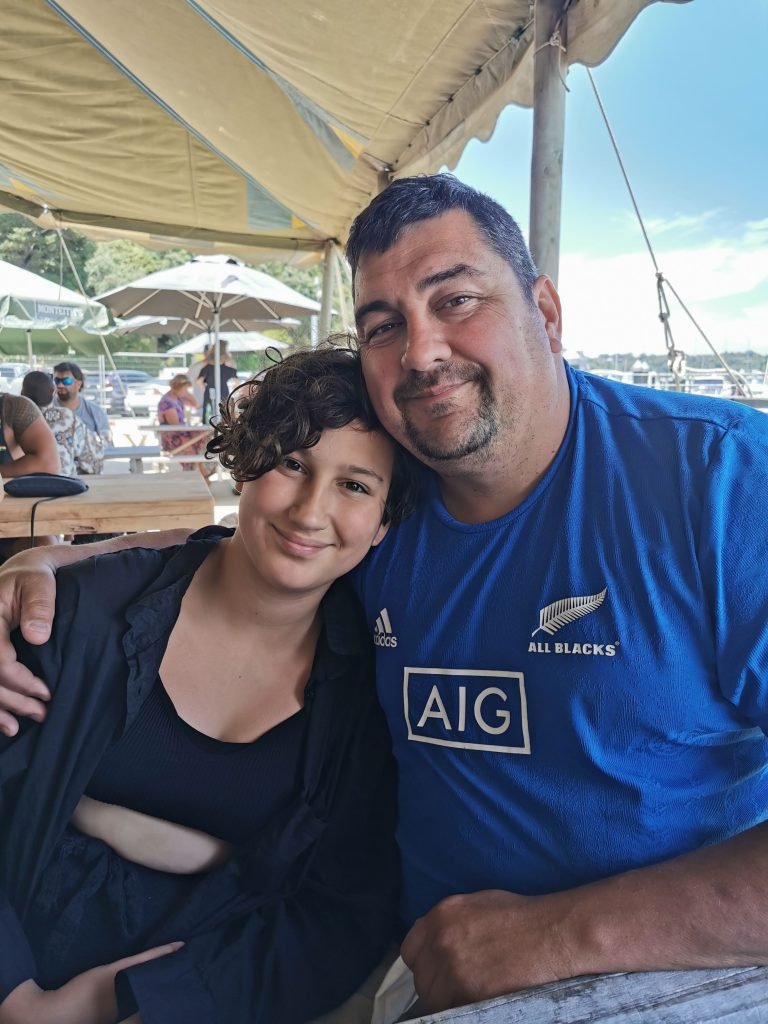
Hope For The Future
As I said earlier in this article, no one is coming to save us or our children, but that doesn’t mean that we are powerless. Each of us has the ability to speak up and advocate for our families and children.
I know that using your voice may be scary and that you want to protect your children. When I first started on this journey with my family I didn’t speak up because I wanted to protect my children too.
However, what I have realised is that in order for my children to thrive in this world as who they are, they do not need protection so much as they need a way to use their voice and claim their right to take up their legitimate space in this world. The way that I can do this as their mum is by going first!
If you are a Parent of a Neurodivergent Teen who would like support, please know that you are not alone. Book your complimentary 15-minute Parent Connection Call with me to get started.
Meet The Person Who Wrote This Blog
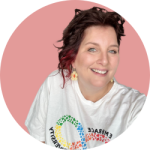
Tanya Valentin is an AuDHD person, mum of three, family coach, author and podcaster.
Tanya is an educator/coach with 25 years of experience working with children and families. She specialises in guiding parents of Autistic & ADHD children and teens through burnout recovery.
She is the founder of From Burnout To Balance and the host of the podcast with the same name.
Tanya’s work combines education, emotional support, and practical strategies, reflecting her commitment to helping families create sustainable, connected relationships during difficult times.
References:
Why Everything You Know About Autism is Wrong, Jac den Houting, TEDxMacquarieUniversity – https://www.youtube.com/watch?v=A1AUdaH-EPM&t=141s
Neurodiversity – https://www.autisticuk.org/neurodiversity
What is Neurodivergence? – https://www.verywellmind.com/what-is-neurodivergence-and-what-does-it-mean-to-be-neurodivergent-5196627
Autistic People and Masking, Dr Hannah Belcher – https://www.autism.org.uk/advice-and-guidance/professional-practice/autistic-masking#:~:text=Effects%20of%20masking&text=Studies%20are%20now%20beginning%20to,2018).
Is There a Link Between Neurodiversity and Mental Health? Amanda Kirby, Ph.D. – https://www.psychologytoday.com/nz/blog/pathways-progress/202108/is-there-link-between-neurodiversity-and-mental-health
A Community Elder at 40: Autistic Mortality, Wendy Katz Erwin -https://neuroclastic.com/a-community-elder-at-40/#:~:text=This%20study%20put%20the%20average,58%20years%20for%20those%20without.
Neurodiversity & Gender Diverse Youth – https://www.lgbtqiahealtheducation.org/wp-content/uploads/2020/08/Neurodiversity-and-Gender-Diverse-Youth_An-Affirming-Approach-to-Care_2020.pdf
Behind the Mask: Autism for Women and Girls, Kate Khale – https://www.ted.com/talks/kate_khale_behind_the_mask_autism_for_women_and_girls?utm_campaign=tedspread&utm_medium=referral&utm_source=tedcomshare
The Link Between Neurodiversity and the LGBTQIA+ Community, Jess Corrine, https://learnfully.com/the-link-between-neurodiversity-and-the-lgbtqia-community/

1 Comment on Shifting The Paradigm Of Neurodiversity